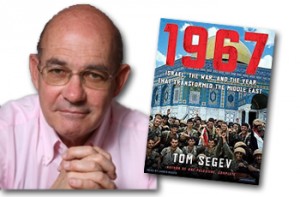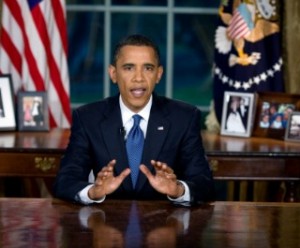Dear friends,
 In these tough times, I want to share with you a few thoughts that
give me hope and that, I believe, will give you hope as well.
In these tough times, I want to share with you a few thoughts that
give me hope and that, I believe, will give you hope as well.
President Obama is speaking our language of linking Jewish values to the quest for peace. In recent days, President Obama has shifted, in a very positive way, his discourse on Israel-Palestine. Today, he is speaking OUR language – a language that directly connects core progressive Jewish values (OUR values) like democracy, pluralism, equality, tolerance, and peace – with the imperative to achieve a two-state solution that resolves the Israeli-Palestinian conflict. He juxtaposes these values with the pernicious policies and practices of Netanyahu and his government(s) – policies and practices that promote not democracy but proto-fascism; not pluralism but racism and divisiveness; not equality but discrimination; not tolerance, but bigotry; not peace, but, rather, ever-deepening occupation. By shifting to a values-focused discourse, President Obama is today eloquently articulating the strong bond between core American values and progressive Jewish values, and expressing his frustration – and the frustration that exists equally in the hearts of most American Jews – with the growing gap between these values and those that are increasingly manifesting themselves in Israeli public life.
--Newly released IDF archive minutes marking the 48th anniversary of the Six Day War today, which reveal how the IDF brass pressured the politicians to authorize an attack.**
 On June 3, 2015, APN hosted Israeli historian and journalist Tom Segev, the author of 1967:
Israel, the War, and the Year that Transformed the Middle East, to discuss the 48th anniversary
of the Six Day War and the occupation of the West Bank and Gaza that unfolded after the war.
On June 3, 2015, APN hosted Israeli historian and journalist Tom Segev, the author of 1967:
Israel, the War, and the Year that Transformed the Middle East, to discuss the 48th anniversary
of the Six Day War and the occupation of the West Bank and Gaza that unfolded after the war.
--Meretz Chairwoman MK Zehava Gal-On slammed back against the MKs who said there was no connection between BDS and the occupation.**
--In a stormy Knesset debate, Likud MK Miki Zohar says the Knesset does not need to hold a discussion about the Six Day War on its 48th anniversary this week.**
 Q: Mr. President, thank you so much for having us at the White House.
Q: Mr. President, thank you so much for having us at the White House.
THE PRESIDENT: Wonderful to have you here.
Q: Here’s what you said just a few years ago: “I had the impression that Prime Minister Netanyahu is not interested in just occupying a space, but is interested in being a statesman and putting his country on a more secure track.” And even -- also, you said, “I believe that Prime Minister Netanyahu wants peace. I think he’s willing to take risks for peace.” Would you repeat those very same words today?
THE PRESIDENT: Well, I think it’s always difficult to put yourself in somebody else’s shoes. And I think Prime Minister Netanyahu -- I’ve gotten to know and worked with since almost the beginning of my presidency -- is somebody who loves Israel deeply. I think he cares about the security of the Israeli people. I think he recognizes the history of hostility and anti-Semitism that makes it very important to him and his place in history to preserve Israel’s security. And I respect all that.
I think that he also is someone who has been skeptical about the capacity of Israelis and Palestinians to come together on behalf of peace. I think that he is also a politician who’s concerned about keeping coalitions together and maintaining his office.
--Ranen Yazarsky revealed her kibbutz’s ‘dirty laundry’ on her Facebook page sparking a storm.**
June 1, 2015 - FIFA and BDS, ramifications of recent rocket-fire, Israel-Hamas dialogue? And more...
This week, Alpher discusses Israel's near-suspension last week from FIFA and what are the broad strategic ramifications of this phase in the global BDS campaign against Israel; how the new right-wing Israeli government, with its heavy pro-settlement bias, can successfully confront this campaign; whether Tony Blair’s departure is a turning point and who will coordinate economic and infrastructure aid to the Palestinians and state institution-building in his absence; whether last Tuesday's firing of a rocket by Islamic Jihad from the Gaza strip towards Ashdod was a blip on the radar screen or an event with strategic ramifications; and the possibility of an Israel-Hamas dialogue.
This photo of me at age seven, sitting on a Jeep taken by Israeli soldiers during the Six Day War, was taken in June 1967, just outside my home in Jerusalem, a couple of days after the war ended. During the weeks and months that followed, my family, like many Israelis, rushed to explore the liberated land of the Bible.
In our old Susita, an Israeli-manufactured clunker with a Ford engine and a fiberglass body, we traveled to Bethlehem, Hebron, Jericho, and the Judea desert. And through the torn-down wall that separated West Jerusalem from East Jerusalem, we walked to the Old City. We pressed prayers into the cracks of the Western Wall and climbed the Mount of Olives. My parents, who had both been Bible teachers, put the scenery in a historical context. We felt that our country was finally whole.

